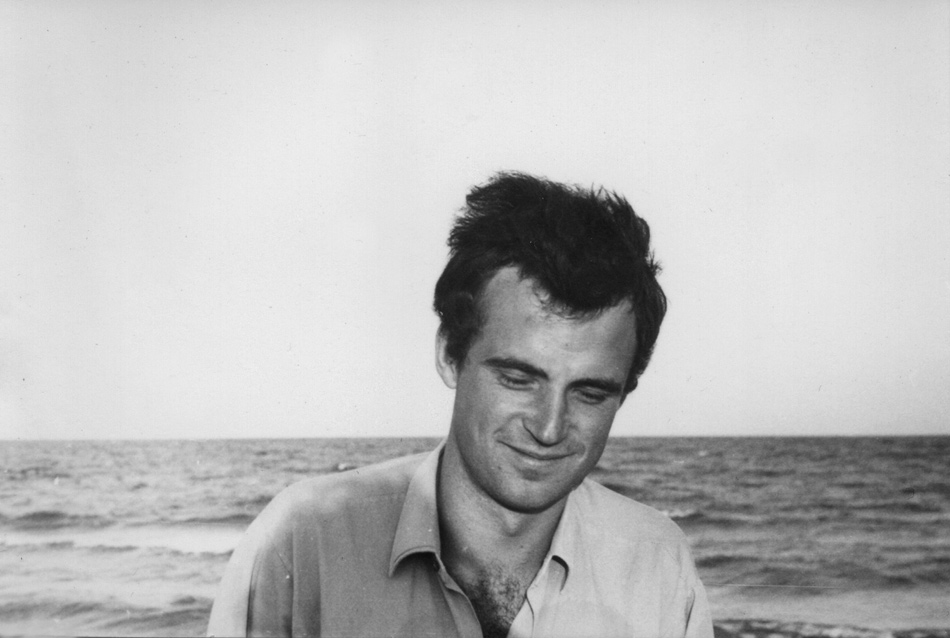After the iron curtain descended, what Winston Churchill in 1946 could still call the “famous cities” of Eastern Europe came to seem oriental and mysterious. East and West became different worlds, divided by military alliances, economic systems, and ideologies. Those who sought ways through and around the iron curtain had to rely on ideas that preceded and might outlast the geopolitical division, and conversations that would in the meantime seem enlightening on both sides.
The Polish thinker Krzysztof Michalski, who died on February 11 in Vienna, was one of the few who found such ways, and he became one of the architects of the Europe that emerged after the end of communism. Born in Warsaw, he devoted his life to the risky proposition that philosophical discussion, in the right setting, could bring together Poles and Germans, Eastern and Western Europeans, and eventually Europeans and Americans. He exemplified what Thomas More called philosophia civilior, or civil philosophy, which “knows its stage” and “adapts itself to the play in hand.” The stage was the Europe of ideas; the play was the cold war and its resolution. The iron curtain could be crossed and might be raised.
Michalski’s youthful vision of a common European conversation arose from the seriousness of the Continental philosophical tradition in Poland and the predicaments of scholarship under its Communist regime. In the late 1960s, when he was a student there, Warsaw University had world-class philosophers, including Leszek Kołakowski. Michalski belonged to the spectacular Polish revolutionary generation of 1968, dispersed when the Communist regime expelled many of its brightest members as “Zionists” and fired their teacher Kołakowski. Michalski remained in Poland and wrote a dissertation on Heidegger, befriending the Polish priest-phenomenologist Józef Tischner and the Czech phenomenologist Jan Patočka.
Michalski’s second book, on Husserl, brought him to West Germany, where he impressed teachers and made friends. In spring 1980, during a seminar in Dubrovnik with Hans-Georg Gadamer, Michalski had the idea of founding an institute for advanced study where Eastern European thinkers (above all dissidents) could meet Western European scholars. The point was not to reconcile official ideological divisions, but rather to reach human understanding and establish friendships as a “side effect of intellectual work on subjects of common interest.”
Michalski was anticipating, and resolving, a practical problem in the Eastern European political thought of the day. In the 1980s Eastern European dissidents defined “civil society” as the independent activity of people who ignored the oppressive Communist state and sought authentic relationships that might, by indirection, create a new sort of politics. Václav Havel and Adam Michnik spoke of “living in truth” or “living as if we were free.” The weakness of these inspiring ideas was their anarchism: civil society cannot endure without institutions, which require not just honesty but tact, not only courage but connections. Michalski had all of these. As a scholar in his thirties he managed to obtain the backing of German scholars and foundations, the city of Vienna, the government of Austria, George Soros, and even Pope John Paul II, who, as Karol Wojtyła, was a fellow Polish philosopher and a friend, for his Institute for Human Sciences. This was independent activity, but with structure and support.
It took some courage, all the same. Funding was very limited at the beginning and uncertain throughout. Michalski and his partners, the young German philosophers Cornelia Klinger and Klaus Nellen, abandoned normal academic careers for an uncertain mission in a city where they were little known. They chose Vienna because it was “at the Iron Curtain, but in a neutral country.” Communist regimes were more likely to allow their citizens to travel there than to a member of NATO.
The first project of the institute was to publish the collected works of Michalski’s mentor Patočka, which was harder than it sounds. Patočka had signed Charter 77, the demand from Czechoslovak dissidents that the Communist regime respect the rule of law. He had died in 1977 under police interrogation. The loyal Czech students of his illegal underground seminar rescued his many unpublished works from his apartment before the police arrived. Soon after the founding of the institute, Michalski’s friend Nellen began to smuggle Patočka’s papers across the Czechoslovak–Austrian border. From these beginnings an Eastern European thinker became a generally known philosopher; writings that were circulating only in Czech samizdat became books accessible in the West.
At the same time Michalski began to organize yearly visits of leading humanists to meet John Paul II at the papal summer residence of Castel Gandolfo, as part of a long-term project on enlightenment and faith. This was the first of several undertakings that, at first glance, seemed of special interest to Eastern Europe, but which in fact permitted movement across the entire European stage. As rector of the Institute for Human Sciences, Michalski sponsored inquiries into, among other subjects, the state of higher education, social inequality after free-market reforms, the spiritual bases of European integration, gender equality, and women’s rights.
Advertisement
This intellectual agenda, as befits civil philosophy, was both profound and timely; it permitted a continuation of activity through the transformations of the late 1980s and early 1990s. When communism came to an end in those years, people who had been fellows of the institute rose to high positions in culture and politics. But such accomplishments understate its importance, which resides above all in intellectual and personal relationships that made European unity seem axiomatic. It was here, for example, that Tony Judt directed the project that became his book Postwar (2006), which more than any work has undivided European history.
It was characteristic of Michalski’s unusual blend of intensity and charm that he believed that an esoteric name, “human sciences,” could successfully advertise a social endeavor. He could brood with the best of them; some visiting fellows of the institute claim they never heard him say a word. His speech mixed seductive charisma and professorial absentmindedness. He would sometimes forget which language he was speaking. He was amusing in English; he was funny in German; he was riotous in Polish. Most of his wicked anecdotes concerned the great and the good (John Paul II, for example) who had made his work possible. Though he was good at persuading people to help, he never used them as instruments; earthy stories make us all human: teller, listener, victim alike.
The civility of Krzysztof’s philosophy resided in his will to create what he called a “free space” for the discussion of ideas; it did not involve concessions to fashion or compromises in style. He engaged with the deep questions of the phenomenological tradition: What, when, and why is human being? His final study, The Flame of Eternity,* a radical reinterpretation of Nietzsche through religious thought, begins from Nietzsche’s fertile paradox: “This life, your eternal life!” It is the furthest thing from dry philosophy: the chapter on love, for example, summons the Christian image of heavenly sweat (coeli sudor) and the Jewish notion of the dew of God (talia). Love eternal: “in the blink of an eye” it unites us with an other and calls into question all previous certainties; in this, Michalski writes, it is like death, and prepares us for death, not as consolation but as awareness that we enter the unknowable more than once.
The sense of practiced eternity, perhaps a mark of love, surrounded Krzysztof’s allegiances. It was easy to be surprised by the mature grace of his two adult daughters, Kalina and Julia, because he told stories of their girlhood as though they were anecdotes from last week. “It’s too bad that Wojtyła is not here,” he might say, smiling, as though his friend the pope had not just died the most public death in history, but were simply somewhere else, “I would ask him to put in a good word for you.” Or: “It’s too bad Patočka is not here,” as if the teacher who had been killed three decades before were just otherwise occupied, “because he was very interested in that question.” It’s too bad Krzysztof is not here.
This Issue
March 21, 2013
When the Jihad Came to Mali
Homunculism
The Noble Dreams of Piero
-
*
Translated from the Polish by Benjamin Paloff (Princeton University Press, 2012). ↩




